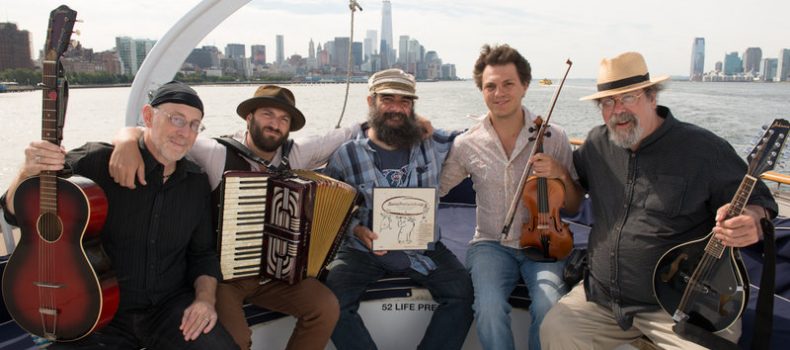Listeners Uncover Details About Mysterious Muse Behind ‘The Brothers Nazaroff’
Listeners Uncover Details About Mysterious Muse Behind ‘The Brothers Nazaroff’
As a result of Jon Kalish’s piece last Saturday on the obscure Yiddish musician known as Prince Nazaroff, a relative and a genealogist have stepped forward to provide more details about the man.
Transcript
SCOTT SIMON, HOST:
Last Saturday, we heard a story about the band The Brothers Nazaroff and their namesake, an early 20th century musician who was known as Prince Nazaroff, of whom little was known, except maybe that he probably wasn’t the member of any royal family. Our story ended this way.
(SOUNDBITE OF ARCHIVED BROADCAST)
DANIEL KAHN: He was buried in countless bargain record crates at the back room of many used record stores. That’s the only grave of his that we know of.
SIMON: Well, thanks to that story, we now know that Prince Nazaroff is buried in New Jersey, and we learned more about his life, too. Listeners got in touch with reporter Jon Kalish.
JON KALISH, BYLINE: Eric Adler is an amateur genealogist in Washington, D.C. After hearing the story, he did some digging and learned that the man who performed as Prince Nazaroff was born Abraham Agronowitz.
ERIC ADLER: The very first record that appears is his immigration record in 1913. And he appears on that as Agronowitz. He also appears in 1917 on the World Ward I draft registration as Abraham Agronowitz.
KALISH: He actually came to America earlier than 1913, says one of three grandchildren who are still alive. Eric Kaufman says that his grandfather was jailed as a teenager in Russia and released after her agreed to serve in the czar’s army.
ERIC KAUFMAN: He joined the army, and like a Max Sennett comedy, got on one side of the train, got off the other side of the train and kept on running. He eventually tied up with this dance troupe.
KALISH: Then it was on to a traveling theater troupe where he met his wife. Again, genealogist Eric Adler.
ADLER: They married over there and he came to the U.S. first, about a year later. And then she and their daughter came a year after that.
KALISH: The wife was listed as Malka Agronovitch, as the family pronounces it, on her naturalization application. The daughter she brought with her eventually had three children – Eric Kaufman, another son named Adam and a daughter named Andrea, who was close to her grandfather.
ANDREA KAUFMAN: I remember him as a sweetheart.
(SOUNDBITE OF NATHAN NAZAROFF SONG)
KALISH: She called him poppy, and she says his hands were always calloused from playing guitars and mandolins.
(SOUNDBITE OF NATHAN NAZAROFF SONG)
NATHAN NAZAROFF: (Singing in Yiddish).
KALISH: But Prince Nazaroff’s career faltered, and he worked odd jobs, one of them at the Bronx Zoo, which was across the street from the family’s apartment building.
ANDREA KAUFMAN: I got to see the elephants, and it was fun.
KALISH: The grandchildren all remember Prince Nazaroff as a great whistler, and Eric Kaufman can still imitate him.
ERIC KAUFMAN: (Whistling). He would signal. When he was in the neighborhood, you could hear him a half a block away. That was his particular signature tune.
KALISH: Kaufman’s granddaughter was dancing along to Prince Nazaroff’s music on the radio last weekend and her mom perked up. When she realized what the story was about, she alerted the family.
ANDREA KAUFMAN: I am grateful for the spirit of the music being transmitted.
KALISH: Nazaroff’s granddaughter, Andrea Kaufman.
ANDREA KAUFMAN: He was an embodiment of the music that he made and his community, and to know that others are picking up his spirit and the energy of joy that came through makes me very happy.
KALISH: And there may be more to come. Smithsonian Folkways has an album’s worth of unreleased material the prince recorded in 1961.
For NPR News, I’m Jon Kalish in New York.
(SOUNDBITE OF NATHAN NAZAROFF SONG)
NAZAROFF: (Singing in Yiddish).
PLEASE, READ:

